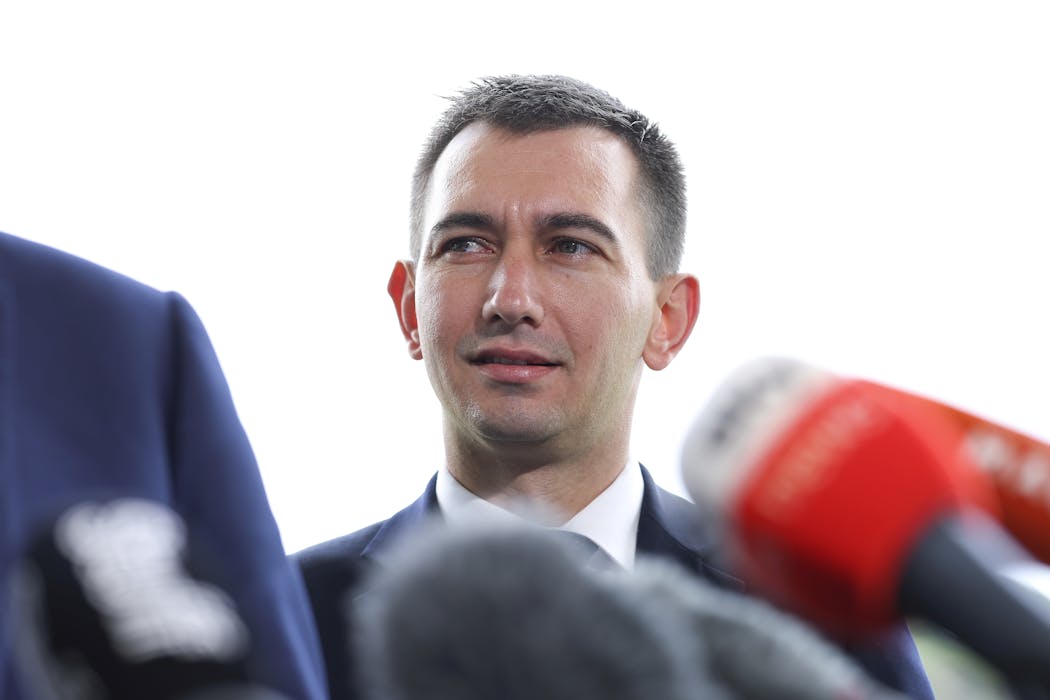Mega-strike: where is the ‘ethical line’ in public health and are doctors really crossing it?
- Written by The Conversation

Health Minister Simeon Brown’s claim that this week’s industrial action by doctors “crosses an ethical line” misunderstands doctors’ ethical responsibilities.
Doctors and nurses, together with teachers, are among tens of thousands expected to take part in a multi-sector “mega-strike” on Thursday.
Striking is an option of last resort. In healthcare, it causes disruption and inconvenience for patients, whānau and the health system – but it is ethically justified.
Arguably, it is ethically required when poor working conditions associated with staff shortages, inadequate infrastructure and underfunding threaten the wellbeing of patients and the long-term sustainability of public health services.
The impact of these conditions on retention and recruitment of doctors in New Zealand is well documented. A 2022 survey shows almost 11% of doctors planned to leave New Zealand permanently, up from less than 5% in 2017. Only 62% planned to continue working in the public healthcare system in 2022, compared to 83% in 2017.
The real ethical issue is successive governments’ failure to address these conditions and their impact on patient care.
Duty of care
The minister’s comments imply that striking doctors are failing to meet their ethical obligations to provide care.
These are the same doctors who, alongside nurses, carers and allied health professionals, kept New Zealand’s health system functioning during the COVID pandemic in the face of heightened personal risk, often inadequate protections and substantial additional burdens.
While the duty of care is of primary ethical importance, codes of ethics also recognise doctors’ duties to all patients, and responsibilities to advocate for adequate resourcing in the health system. These duties may justify compromising care to individual patients under the circumstances in which industrial action is considered.
As was well recognised during the COVID pandemic, governments have reciprocal duties to healthcare workers, including to provide safe and well resourced working environments.
The health minister seems to imply doctors are striking solely for individual gain. But like all healthcare workers, doctors take seriously their obligations to provide high-quality care in the public health system.
They are striking because their ability to meet these obligations is routinely compromised by working conditions that contribute to burnout and moral injury – the impact of having to work under circumstances that violate core moral values.
A key goal of the industrial action is to demand better conditions for clinical care, such as safe staffing levels, that will benefit patients and staff and improve the health system for everyone.
The right to strike
The minister may be concerned that strike action goes against doctors’ obligation to “do no harm”, or to put their patients’ interests first. These are important ethical commitments. But, like many ethical commitments, they are not absolute and must be balanced against other values and interests.
The potential risks of surgery, for example, are balanced against the patient’s likelihood of a long-term health gain. While doctors must provide life-preserving care during strike action, and minimise potential harms, some disruptions and inconveniences are ethically justified in light of the public interest in a safe, high-quality health service.
Doctors can argue they are striking out of concern that unless their claims are addressed even greater harms will result.
When healthcare workers are underpaid, undervalued and overworked, it is challenging to recruit and retain staff, undermining efforts to provide high-quality care.
As a party to the code of good faith in the Employment Relations Act 2000, Health New Zealand – and ultimately the minister of health – are required to commit to “develop, maintain and provide high-quality public health services”.
We should also be concerned about societal harms resulting from preventing doctors or other healthcare workers from taking industrial action in the future.
The right to strike is an important entitlement of workers to protect their social and economic interests. It is recognised internationally (in the International Covenant on Economic, Social and Cultural Rights) and protected under New Zealand’s employment law.
Preventing doctors from striking would violate this right. It would also risk the safety and wellbeing of patients by removing the capacity of doctors to demand better conditions in our hospitals.
Thursday’s strike action by doctors, alongside teachers, nurses and other health professionals, is ethically justified in defense of high-quality public services for everyone.







